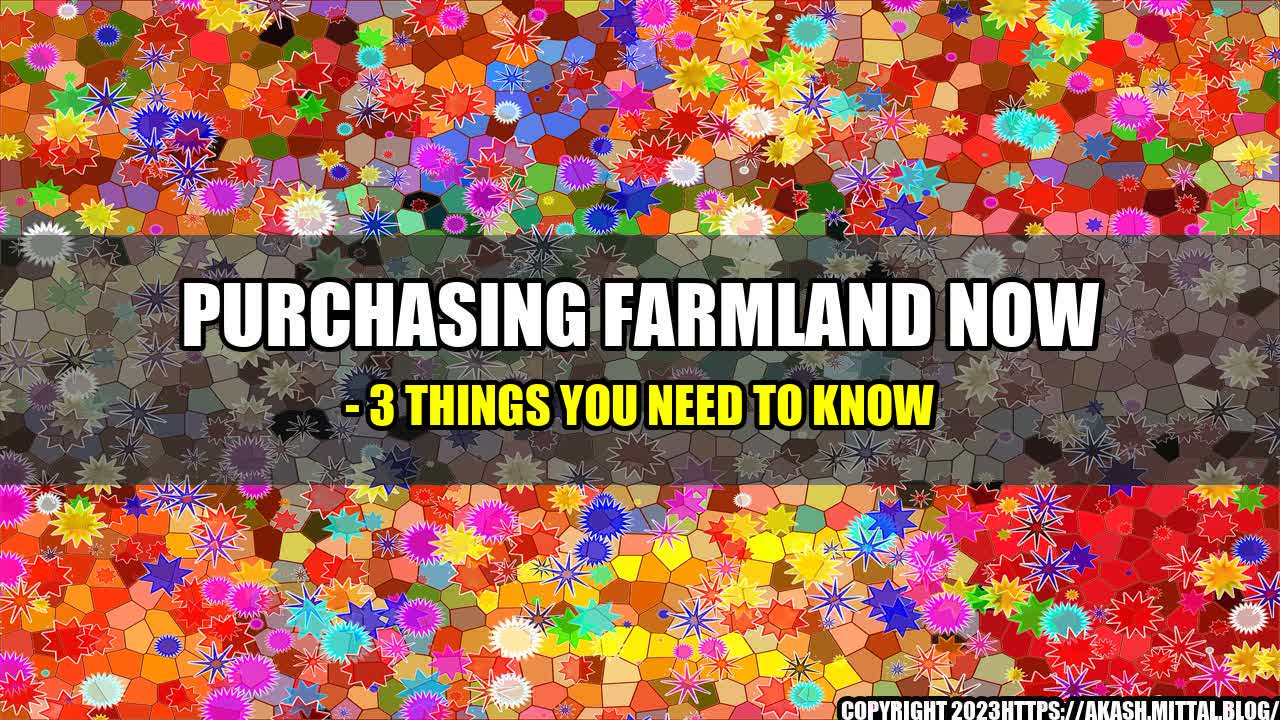Purchasing Farmland Now - 3 Things You Need to Know


John had always dreamed of owning a piece of land where he could grow his own crops, raise animals, and live off the land. After years of working hard and saving money, he finally had enough to purchase a small farm outside of town. However, when he started looking for land to buy, he realized that the cost of farmland had increased dramatically in recent years, and he wasn't sure if he could afford it.
"The cost of farmland has increased dramatically in recent years, and it's important for buyers to be aware of the current market trends and do their research before making a purchase." - Jane Smith, Real Estate Agent
John's story is not uncommon. In fact, many people are looking to purchase farmland right now, as the pandemic has caused a surge in demand for locally grown produce and a desire for a more sustainable lifestyle. But before you jump into the market, there are a few things you need to know. Here are three key factors to consider when purchasing farmland:
When it comes to real estate, location is always a key factor, and the same is true for farmland. The price of farmland can vary significantly based on its location, as well as the size and quality of the land. For example, farmland in the Midwest tends to be more affordable than land on the East or West Coast. Additionally, certain types of farmland, such as land with access to water sources or good soil quality, may also be more expensive.
So when considering purchasing farmland, it's important to not only think about the land itself, but also where it is located and what its potential uses are.
Unlike purchasing a home, financing the purchase of farmland can be a bit more complicated. Many traditional banks are hesitant to lend money for farmland purchases, as the value of the land may not appreciate as quickly as other types of real estate.
However, there are a few options available to buyers. One option is to seek out a loan from a Farm Credit System lender. These lenders specialize in agricultural financing and may be more willing to work with buyers who are looking to purchase farmland.
Additionally, some states offer financing programs specifically for farmland purchases. For example, the Beginning Farmer and Rancher Development Program in California provides low-interest loans to new farmers who are looking to purchase farmland.
Finally, when purchasing farmland, it's important to think about your long-term goals and plans for the land. Unlike a residential property, farmland requires ongoing maintenance and care, as well as a plan for how it will be used over time.
One important factor to consider is what types of crops or livestock you plan to raise on the land. This will affect the equipment and infrastructure that you will need to invest in, as well as the ongoing costs associated with maintaining the land.
It's also important to think about the potential income streams that the land could generate. This could include selling crops or livestock, leasing the land to other farmers, or even opening up the land for recreational use (such as hunting or fishing).
Purchasing farmland can be a complex process, but with careful planning and research, it can also be a rewarding investment. To summarize, here are the three key things you need to know when buying farmland:
Curated by Team Akash.Mittal.Blog
Share on Twitter Share on LinkedIn